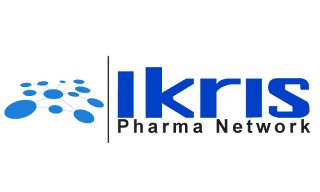Abrocitinib
Medicine Name: Cibinqo
API: Abrocitinib
Dosage Forms & Strengths: 50 mg, 100 mg, and 200 mg tablets
Manufactured by: ImmunoGen
Medicinal Uses
Abrocitinib is used to treat moderate-to-severe atopic dermatitis in adults and pediatric patients aged 12 and above, who haven't responded well to other systemic drugs or when using those treatments isn't recommended.
Recommended Dosage:
- Starting Dose: Take 100 mg orally once daily.
- Adjustment: If the response is inadequate, the doctor may increase the dose to 200 mg daily.
- Special Situations: For moderate kidney issues or specific metabolic conditions, the dosage may be adjusted.
- Regular Check-ups: Regular check-ups and tests are needed to monitor your health during treatment.
- Precaution: Avoid using Abrocitinib with other JAK inhibitors or certain immunosuppressants.

Warnings and Precautions:
- Infections: Serious bacterial, fungal, or viral infections may occur. TB testing is required before and during treatment.
- Mortality Risk: Some patients have a higher risk of all-cause mortality, including cardiovascular complications.
- Cancer Risk: Instances of lymphomas and lung cancers have been reported.
- Heart and Blood Clot Risks: Issues like heart problems and blood clots have occurred in some cases.
Documentation & Availability in India:
If you are considering the import of Abrocitinib to India, please be aware that Abrocitinib can be imported by patients or government hospitals solely in the name of the patients. The following documentation is essential for the successful import of this medication:
Required Documentation for Import:
A valid prescription from a qualified medical practitioner.
Diagnostic reports of the patient.
Government-issued identification proof for the patient, as recognized by the Government of India.
Order Confirmation Process:
The order for Abrocitinib will be confirmed upon the receipt of the following documents:
A valid prescription from a qualified doctor.
An import permit, if applicable.
Availability of Abrocitinib in India:
Abrocitinib is classified as a prescription pharmaceutical drug. Consequently, it legally requires a medical prescription to be dispensed. Indian Pharma Network (IPN) specializes in facilitating the import of cancer medicines through named patient supply (NPS), ensuring transparency and authenticity by sourcing from reputable suppliers in the USA, Canada, Europe, and Australia.
Abrocitinib can be made accessible to patients, doctors, and hospitals in various cities across India, including but not limited to Mumbai, Kolkata, Hyderabad, Chennai, Ahmedabad, Delhi, Bangalore, Srinagar, Jammu, Jaipur, Chandigarh, Ludhiana, Noida, Gurgaon, Lucknow, and Pune. To confirm an order, a valid prescription from a doctor and an import permit will be required.
IPN (Indian Pharma Network) is dedicated to facilitating the supply of Abrocitinib (prescription medicines) to locations both within India and worldwide, while adhering to relevant legal requirements.
For inquiries regarding the price of Abrocitinib in India and to initiate the ordering process, please reach out to us through the following contact details:
Phone: +91-9310090915
Toll-Free Number: 1800-889-1064
Email: info@indianpharmanetwork.in
Our commitment lies in assuring quality and timely delivery to meet the healthcare needs of patients and medical professionals across the globe.
Sourcing & Delivery: Indian Pharma Network is proficient in sourcing Abrocitinib from around the world and ensuring efficient delivery to patients. We provide worldwide access to the best available treatments and expedite prescription dispensing and delivery, with all prescriptions being dispensed and scrutinized by registered pharmacists before dispatching them to the patient's address, exclusively from New Delhi, India.
FAQ’s
What is Abrocitinib used for?
Abrocitinib is used to treat moderate-to-severe atopic dermatitis in adults and pediatric patients aged 12 and above when other systemic drugs haven't worked or are not recommended.
How should I take Abrocitinib?
The typical starting dose is 100 mg orally once daily. Your doctor may adjust this to 200 mg daily if the initial response is inadequate. Specific dosage adjustments might apply in certain health conditions.
What should I be cautious about while taking Abrocitinib?
It's essential to avoid using Abrocitinib with other JAK inhibitors or specific immunosuppressants. Additionally, regular health check-ups and tests are necessary during treatment.
Are there any significant risks associated with Abrocitinib?
Yes, serious infections (bacterial, fungal, or viral), increased mortality risk, potential for developing cancers like lymphomas and lung cancers, and risks related to heart problems and blood clots have been observed in some cases.
Do I need any specific tests before or during Abrocitinib treatment?
Yes, it's crucial to undergo TB testing before and during treatment due to the risk of serious infections. Regular health monitoring will also be necessary to ensure your safety during the course of treatment.



